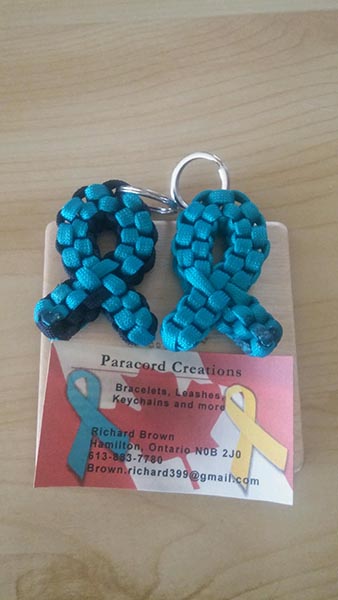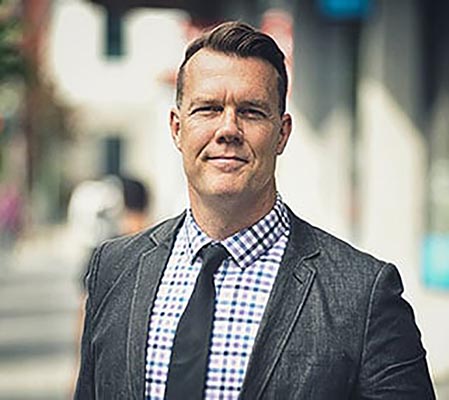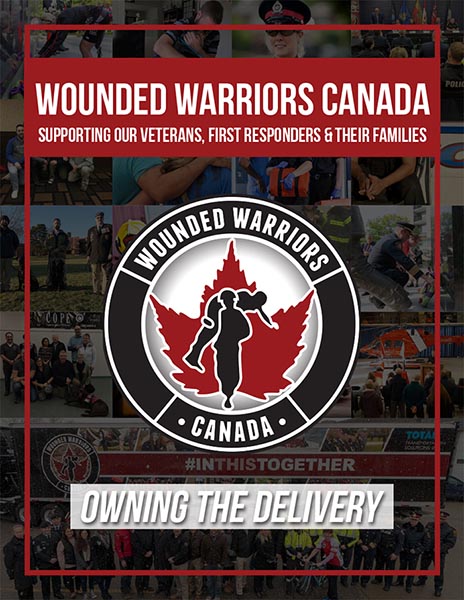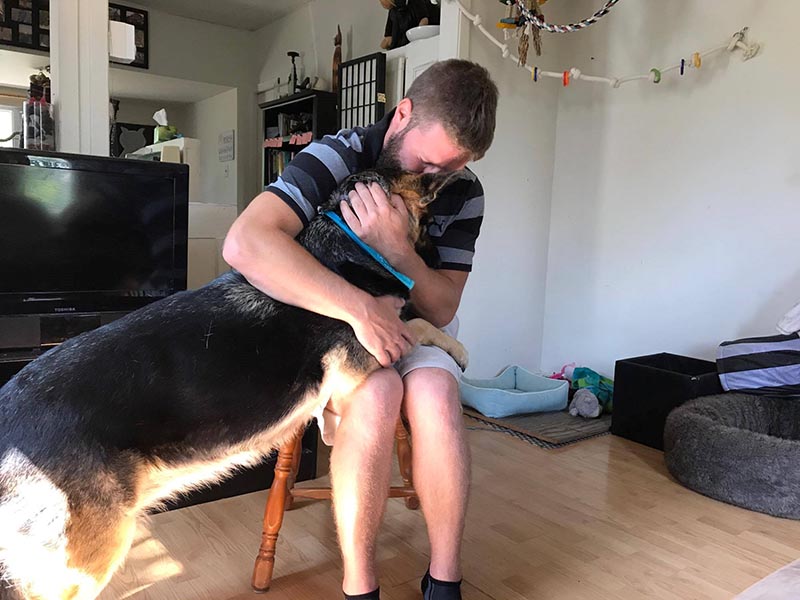Getting Past “I’m Fine”- Staying mentally strong during COVID-19
Related Links
- Mental Health Commission of Canada: The Working Mind COVID-19 Self-care and Resilience Guide
- CAMH: Coping with Stress and Anxiety (during the COVID-19 pandemic)
- Veterans Affairs Canada
- Wounded Warriors Canada: COVID-19 Update
- The Hope for Wellness Help Line offers immediate help to all Indigenous peoples across Canada.
Article / May 19, 2020 / Project number: 19-0283
Note: to view additional photos, click the photo under Image Gallery.
By Moira Farr, Army Public Affairs
Ottawa, Ontario — For Wounded Warriors Canada (WWC), supporting more than 500 military veterans and first responders with post-traumatic stress disorder (PTSD) and other operational stress injuries presents unique challenges at the best of times.
Add the isolation measures required during a pandemic, and the work of helping people with mental health concerns becomes that much more challenging.
Along with most other charitable organizations in the time of COVID-19, WWC has had to postpone major fundraising events, such as the Battlefield Bike Ride to commemorate the 75th anniversary of the liberation of the Netherlands, originally scheduled for late June, 2020.
That’s disappointing, says executive director Scott Maxwell, but the real concern has been the need to halt clinical programs that were starting up across the country just as pandemic isolation measures came into force.
Unfortunate timing, to say the least, for therapeutic support and resiliency training delivered primarily in live groups and one-on-one meetings with professionals and peers. “We just had to quickly figure out how to do things differently,” says Maxwell. “The goal,” he adds, for those coping with mental stress injuries, “is always to break down the isolation that can creep in.”
Those live group and one-on-one programs will resume at an unknown future date, but for now, WWC is bridging the gap with a series of videos on its website, featuring, among others, national clinical advisor Dr. Tim Black, associate professor of psychology at the University of Victoria, and an expert in group counselling and military to civilian transition.
As well, the organization has ramped up its virtual peer support, connecting participants with others who have gone through similar experiences of trauma in their work lives, completed training programs, and have a deep empathy for what their peers are going through.
“BETR” ways to cope
For veterans like 35-year-old Richard Brown of Hamilton, Ontario, who sustained an operational stress injury while working on the HMS Iroquois in 2006, resiliency skills he learned through a Wounded Warriors Canada program prior to the nationwide lockdown have been invaluable. “I find the techniques are grounding,” says Brown.
The “BETR” model — an acronym for Body, Emotions, Thoughts and Relationships — as explained in a calm and reassuring manner by Dr. Black in his video, offers a simple, step-by-step self-check-up that anyone can do, anywhere, any time, to control negative thoughts and emotions that may be triggered by daily stresses. “It’s not magic. It’s not going to solve all your problems, but it’s a building block,” says Dr. Black.
Another video on the WWC website features clinician Alex Sterling, who teaches members how to build a “resource kit” for coping with tough moments when past painful, traumatic experiences encroach on the present. It’s as simple as picking a soothing memory of a place, a song, an object — even a smell, like cookies baking in an oven — to call upon whenever you need to calm your emotions and move away from distressing thoughts.
Brown says he tries to keep exercising and limiting his use of substances, but also stays in daily phone contact with a WWC peer, a paramedic who has been through similar trauma, and is trained in providing this kind of support. He attends a weekly coffee group on Zoom through his girlfriend’s church.
“The isolation is very tough,” says Brown, but the resiliency training he has received helps him stay focused on keeping himself mentally healthy. Also useful has been his “little hobby,” now a daily practice, making paracord crafts — key chains, dog leashes and collars — that he sells on Facebook’s Canadian Veteran Marketplace, already raising hundreds of dollars for WWC. “When I’m really stressed, I just go to town on my paracord crafts,” says Brown.
Physically isolated, but not alone
The potential toll of COVID-19 isolation on all of us, but in particular those with pre-existing mental health conditions, has not been lost on providers of mental health services. Most organizations offering support have quickly responded to this unprecedented situation by developing more online resources. These may not be as “robust” as in-person, one-on-one or group therapy, but they can help, says Colonel (Retired) Russell Mann, senior advisor to the Vanier Institute of the Family and a member of the Canadian Military and Veteran Families Leadership Circle.
“I have to look at this as both a crisis and an opportunity,” says Col (Retd) Mann. People with operational stress injuries tend to function better if they have consistency and routine in their lives, he points out, but COVID-19 shifted all of our routines, in some cases dramatically. That disruption to work and family life can have adverse mental effects on anyone.
“Let’s not put on rose-coloured glasses,” says Col (Retd) Mann. “There are people out there who are exhausted. Anyone who is deployed is dealing with fear for themselves and their families.”
Although these are difficult times for everyone, says Col (Retd) Mann, organizations like Wounded Warriors Canada are doing their best to offer services that take into account the extra pressures brought on by COVID-19. “This is absolutely an opportunity to help people understand that they can maintain a positive mindset, even if they’re not happy.”
It is also a time when people need to make special efforts to reach out to each other. “A lot of us are asking ‘How are you really?’ when someone says they’re ‘fine’.”
And, says Col (Retd) Mann, this is not a bad time to draw on the wisdom of the oldest surviving veterans. “They have the experience of war. They understand there was an end to that. And there will be an end to COVID-19. We all have to remember that.”
To comment on this article, visit the Canadian Army's Facebook Notes



